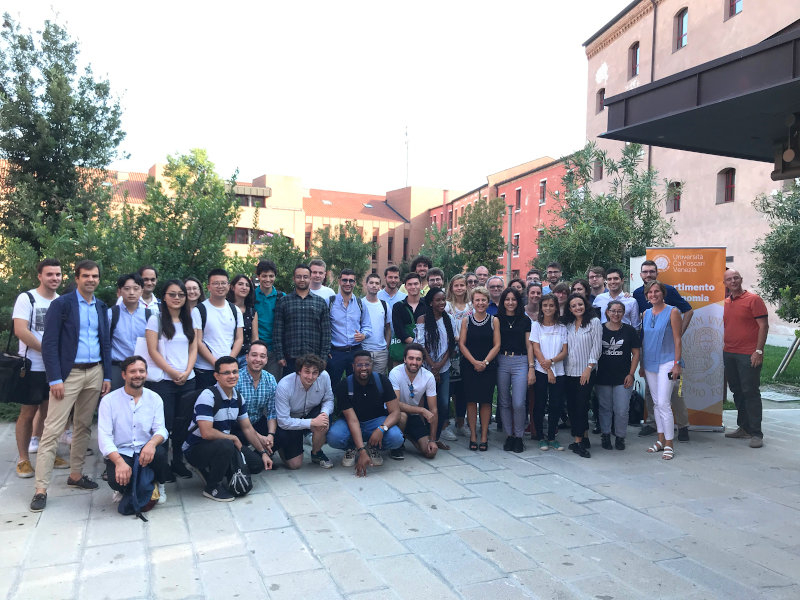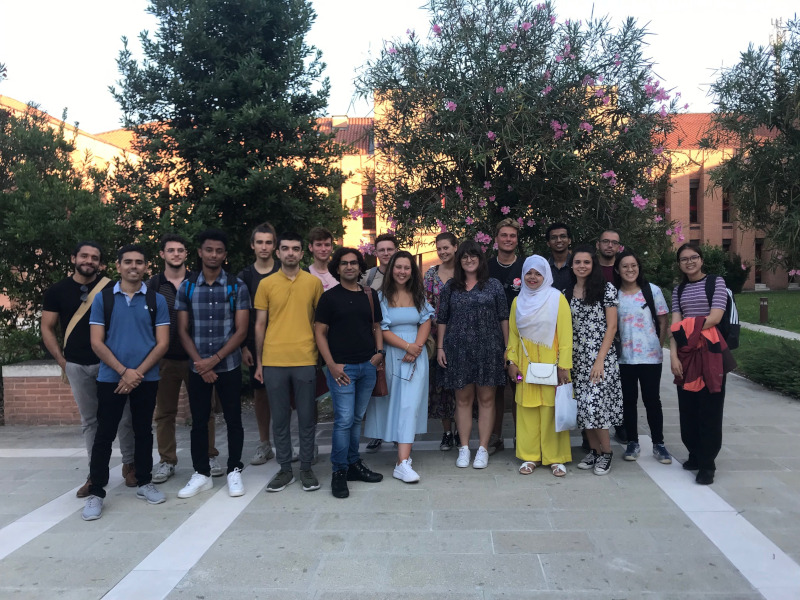Economics, Finance and Sustainability
Enrolment until 2024/2025
Ca’ Foscari University offers the Erasmus Mundus Joint Master Degree (EMJMD) QEM - Models and Methods of Quantitative Economics, a joint degree program of excellence with Université Paris 1 Panthéon-Sorbonne (Paris, France), Universitat Autònoma de Barcelona (Barcelona, Spain) and Université Catholique de Louvain (Louvain la Neuve, Belgium) and Warsaw School of Economics (Warsaw, Poland).
The EMJMD Programme QEM is a two-year graduate degree program in quantitative economics, taught in English, and approved by The Education, Audiovisual and Culture Executive Agency (EACEA) under the Erasmus+: Erasmus Mundus Master Courses (EMMCs) brand.
The joint programme is open only to students selected through the QEM procedure. Students may spend at least a semester in Ca’ Foscari University.
Local Coordinator: prof. Fabio Michelucci
Deputy Local Coordinator: prof. Pietro Dindo
Department of Economics: qem-venice@unive.it
International Office – Counseling and Welcome Unit: jointdegree@unive.it
Applications are open on the website master-economics-qem.eu.
Students enrolled at Ca' Foscari in the Master's Degree in Economics, Finance and Sustainability are not automatically enrolled in the joint degree program. If they are interested in entering the Erasmus Mundus Joint Master Degree (EMJMD) QEM programme, they can access at the end of the 1st semester after passing the mid December QEM exams organized by the Consortium.
On this regard, Ca’ Foscari students should send a written request to Prof. Fabio Michelucci ( fabio.michelucci@unive.it) before September 30th.
The following sources of funding are open to Quantitative Economics Master applicants.
For detailed information on each option, please click on the title:
The EMJMD QEM at Ca' Foscari University is broken down into two years of studies: the first year where focus is on core courses, like in each partner university, with the objective of building a solid foundation in economics and quantitative methods; the second year of specialization with emphasis on two curricula, Quantitative Economics or Quantitative Finance.
Objective: The first year of the programme is focused on core courses with the objective of building a solid foundation in Economics and quantitative methods on which students build during their specialisation in the second year.
60 ECTS credits are required and are allocated as follows:
The syllabus of each course and frequency plans are available on webpage about the Study plan.
First Semester:
Second Semester:
* mandatory for students planning to spend their second year in Venice. If you will not spend your QEM2 year in Venice, you may choose an elective course of 6 ECTS credits from the box below.
The objective of the second year in Venezia is to educate students in advanced methodologies and models in economics and finance, with the goals of both research orientation for further studies and practical applications.
Areas of specialization are in Quantitative Economics or Quantitative Finance. More precisely: Microeconomics, Game Theory, Finance, Insurance, Public Finance, International Economics, Industrial Economics, Behavioral Economics and Experimental Economics, Mathematical Economics, Quantitative Finance, Econometrics and Financial Econometrics .
For the selection of the specialization courses students should interact with Prof. Fabio Michelucci ( fabio.michelucci@unive.it) that will help them to select the courses in line with their interests and further carriers objectives.
The structure of the studies is: Specialization courses (around 40 credits, including Foreign Language) and Master dissertation (around 20 credits)
The syllabus of each course and frequency plans are available on webpage about the Study plan.
First and second semester:
The syllabus of each course and frequency plans are available on webpage about the Study plan.
First semester
** if not chosen in the second year’s exam cluster choice.
Second semester
*** if not chosen in the second year’s cluster choice.
As for the 2022/2023 academic year, Ca’ Foscari hosted 35 students from both the first and the second year.
Seventeen of them spent their first semester with us, attending core courses such as Microeconomics, Macroeconomics, Optimization, Probability and Statistics, and their second semester in one of our partner Universities - Paris 1 Pantheón-Sorbonne, Université Catholique de Louvain, Universitat Autonòma de Barcelona, Warsaw School of Economics. The remaining eight students had already spent part of their academic career in one of the consortium Universities. They took specialization courses and defended their thesis here in Venice. All the students who graduate on time with a GPA greater than 23/30 will obtain their final joint Degree from all Universities, with a ceremony held in July in Paris.
The students hosted at Ca’ Foscari come from all continents: America (Colombia, Bolivia, U.S.A.), Europe (Italy, France, Spain, Poland), Asia (Turkey, Armenia, China, Uzbekistan), and Africa (Egypt, Ghana, South Africa). Among the students hosted by our partners – and potentially hosted by our University from next semester - many other countries are represented. Some of the students are awarded with the Erasmus Mundus Scholarship, which covers fees, board and lodging; many other students are granted a Ca’ Foscari mobility grant.
About half of the students who graduate form this programme continues their career in Academia with a PhD in Europe or in the U.S.A; others begin brilliant careers in consulting companies, banks, and research institutes.

